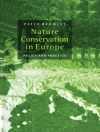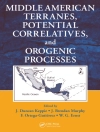Quantum and Blockchain technology innovations have recently gained a lot of attention and have been integrated with other contemporary technologies for numerous applications. As a result, these applications achieve sustainability, robustness, scalability, security, accountability, and efficiency. Thus, this book covers the principles, terminologies, methods, protocols, and sustainability of quantum and blockchain technology. Furthermore, it provides insights into numerous challenges associated with other domains of computer science. In addition, the book provides various opportunities to integrate the quantum and blockchain technology-based sustainable solutions that incorporate low-cost, quality of services, secure and faster delivery of services for future demands in the fields such as cryptography, artificial intelligence (AI), machine learning (ML), deep learning (DL), computer vision, healthcare, autonomous vehicles, transportation, information, and communication theory. The information in this book is extremely useful for readers and practitioners in different fields including chemistry, mechanical and automotive engineering, healthcare, computer science, data science, and business analysis specialists in combining both basic and advanced level principles.
İçerik tablosu
QSB – Smart Contracts, Consensus, and Quantum Cryptography.- The intersection of blockchain technology and the quantum era for sustainable medical services.- Innovative Solutions for Sustainability: Quantum and Blockchain Technologies.- Combating Counterfeit Drugs in Pharmaceutical supply chain (PSC) using Hyperledger Fabric Blockchain.- Quantum and Block Chain for Sustainable Health Care Ecosystem.- Music DApp on the Solana Blockchain Platform: Design, Development, and Analysis.- Role of Blockchain in Healthcare.- Innovative Solutions for Sustainable Medical Services: A Look into Quantum and Blockchain Technologies.- Blockchain Technology and Quantum Computing: A Promising Solution for Healthcare Industry and COVID-19 Pandemic.- Sustainable solutions for server-less edge, fog and cloud computing using quantum and blockchain technology.
Yazar hakkında
P Srikanth is an Assistant Professor in the Department of Computer Engineering at MPSTME SVKM’s NMIMS Shirpur campus and previously worked as an assistant professor-selection grade in the School of Computer Science at the University of Petroleum and Energy Studies, Dehradun, India. He received a Bachelor’s degree (B. Tech) in Information Technology from JNTU Hyderabad, India, in 2006 and a Master’s degree (M. Tech) in Computer Science with specialization in Parallel Computing from JNTU Hyderabad, India, in 2012. He was awarded a Ph D in Computer Science Engineering from the University of Petroleum and Energy Studies, Dehradun, India. He has extensive teaching and academic experience, and his main research interests include trust assessment, social networks, information security, mobile ad-hoc networks, and image processing. Many of his research publications have appeared in reputed journals and conferences at the international and national levels. He has Indian, Australian, and German patents in his research.
Adarsh Kumar received his Master’s degree (M. Tech) in Software Engineering from Thapar University, Patiala, Punjab, India, in 2005 and earned his Ph.D. degree from Jaypee Institute of Information Technology University, Noida, India, in 2016, followed by a Post-Doc from Software Research Institute, Athlone Institute of Technology, Ireland during 2016-2018. From 2005 to 2016, he was associated with the Department of Computer Science Engineering & Information Technology, Jaypee Institute of Information Technology, Noida, Uttar Pradesh, India, where he worked as an Assistant Professor. Currently, he is working with the University of Petroleum & Energy Studies, Dehradun, India, as an Associate Professor in the School of Computer Science. His main research interests are cybersecurity, cryptography, network security, and ad-hoc networks. He has published 60+ research papers in reputed journals, conferences, and workshops. He participated in one multi-billion European Union H2020 sponsored research project and is currently executing two research projects sponsored by the UPES SEED division.
Dr. Naga Raju M received a Ph.D. degree in Computer Science and Engineering from VIT University, Vellore, Tamil Nādu, India in 2016. Have 23 years of teaching experience in various institutions with different academic positions. He is currently working as Associate Professor, in Computer Science and Engineering Department, GITAM (Deemed to be University), Bengaluru, Karnataka. He is a research supervisor for Ph.D. research scholars. He has published over 18 research papers in reputed international and national Journals. He has published a few book chapters for reputed publishers, like, Taylor and Francis. He is a lifetime member of the Computer Society of India.
Cathryn Peoples received the B.A. degree (with honours and diploma in industrial studies) in business studies withcomputing, M.Sc. degree in telecommunications and internet systems, and Ph.D. degree in networking from Ulster University, U.K., in 2004, 2005, and 2009, respectively.
She is currently employed by The Open University in the School of Computing and Communications within the Faculty of Science, Technology, Engineering & Mathematics as an Associate Lecturer in Software Engineering (South & West & Wales), for the Computing and IT Project (UK and Ireland), and for a Degree Apprentice module in Advanced Work-based Learning (England). On a part-time basis, Cathryn also works as a Research Associate at Ulster University working on Internet of Things (Io T) research. Prior to these appointments, Cathryn was employed as a Lecturer at Queen Mary University of London in the School of Electronic Engineering and Computer Science, with shared teaching on the Joint Programme at the Beijing University of Posts and Telecommunications. Teaching in this post includes the Networks and Protocolsmodule on the B.Sc.(Eng) Internet of Things Engineering degree, and the Communications and Networks module on the BEng(Hons) Computer Systems Engineering degree. Previously, Cathryn has been employed as a Teaching Fellow in the Faculty of Computing and Engineering at Ulster University, teaching on an M.Sc. degree in Professional Software Development. Prior to her appointment into this post, she worked as a Research Associate at Ulster University in the area of next generation networking.
Cathryn’s research interests include cloud management, cross-layer protocol optimisation, delay-tolerant networking, smart cities, and green IT. She joined the Computational Educational Committee associated with the ACM SIGHPC Education Chapter in January 2020. Cathryn is also a Senior Member of the Institute of Electrical and Electronics Engineers (SMIEEE) and the Association for Computing Machinery (SMACM). She became a Certified Associate in Project Management in August 2008, an Associate Fellow of the Higher Education Academy in February 2015, and achieved Fellowship of the Higher Education Academy in March 2018. Cathryn achieved Full College membership of EPSRC in August 2018, and she became the co-Editor-in-Chief of the EAI Endorsed Transactions on Cloud Systems in January 2020.












